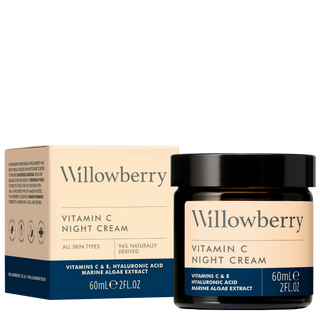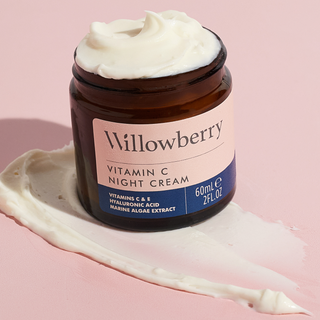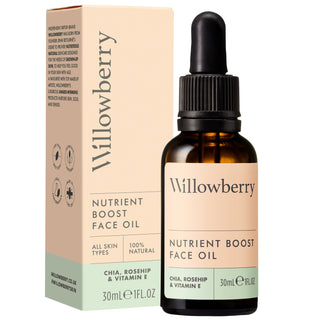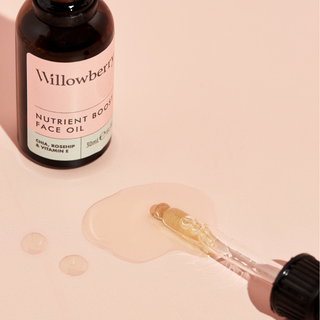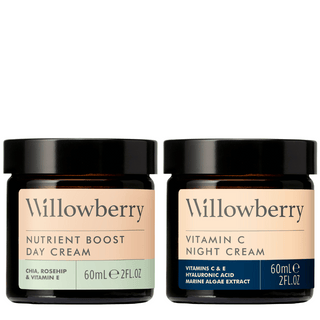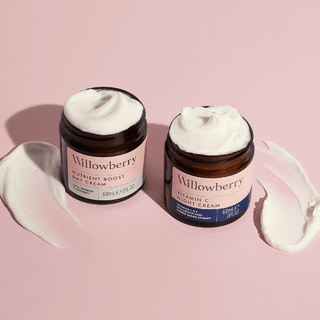While we are hugely proud to be part of our wonderful beauty industry and beauty products have the ability to make us feel darned good about ourselves, the current age narrative in beauty can inadvertently make women feel bad about their age as they get older, due to age-resistant wording such as ‘anti-ageing’ and 'age reversal'.
The problem with ‘anti-ageing’ skincare starts with the fact that a skincare product that reverses the signs of age doesn’t exist. We age (if we’re lucky) and while skincare helps make skin look its best, no skincare product can stop signs of age from eventually appearing on our faces.
A knock-on effect from the notion of anti-ageing is that the suggestion of needing to be 'anti' age promotes a culture of negativity around the concept of getting older; a very natural part of life that we should celebrate reaching, rather than dreading.
Your face is not your enemy
We believe there need to be a change in the language around skincare and age. Anti-ageing casts our advancing years as a hostile enemy from which we have to defend ourselves and our skin at all costs. But the problems that we are told we should be addressing are simply not problems at all; wrinkles and lines are natural, yet history has long taught us to dislike the lines on our faces.
Learning to live with lines
If we’re lucky to get old, we have wrinkles for years: what a terrible waste of time to spend those years disliking our own reflections. In her essay ‘The Double Standard of Aging’, Susan Sontag wrote: "Large amounts of women’s energies are diverted into this passionate, corrupting effort to defeat nature: to maintain an ideal, static appearance against the progress of age". Sontag ends the essay with: "Women should allow their faces to show the lives they have lived". Written in 1972, this still seems like a radical idea 50 years on.
Celebrate, don’t fear
Wouldn’t it be wonderful if instead of fearing our ageing appearances, we celebrated them? As 80 year old artist and blogger Sandra Sallin said in our recent Age Without Apology expert chat: "What’s the matter with old, anyway?".
Each line on your face is a testament to smiling, laughing and loving, and to the hard times too. Testament to all the adventures, wisdom and experience that make up the wealth of a life. Society would have us believe that as we get older we become undesirable, not useful, irrelevant. And yet, we all know from our own lived experience with mothers, grandmothers, older colleagues and friends, that is simply not true.
Changing the way we think
Last year the city of Toronto ran an ad for ‘Aging Cream’, on buses in the city. The campaign featured a cream from a company called Imagés that claimed it could make you look older and increase confidence. The cream and the company were, of course, a hoax. The campaign was run to highlight the prevalence of ageism (Images is an anagram of ageism) in the workplace and to show that writing off older people denies you the benefit of their confidence and experience.
Willowberry takes a different stance
Turning your back on the premise of anti-ageing doesn’t mean not caring about looking good. Here at Willowberry, we proudly fly the flag for the anti-anti-ageing movement, with our philosophy of grown-up skincare that focuses on skin looking great, whatever age you are. That doesn’t mean chasing impossible results of wrinkle removal, it means looking after your skin to keep it healthy and glowing and looking the best it can.
To quote Naomi Wolf in her landmark book The Beauty Myth, "there is an alternative to anti-ageing: ‘that women will first accept their aging, then admire it, and finally enjoy it".
Willowberry is nutritious natural skincare for grown-ups, for your best skin.
A favourite with top make-up artists, Willowberry's luxurious award-winning products protect skin’s natural barrier function, to nourish and revive grown-up skin without telling women to be 'anti-ageing'.
As seen in Vogue, Independent, The Telegraph, This Morning and more.




